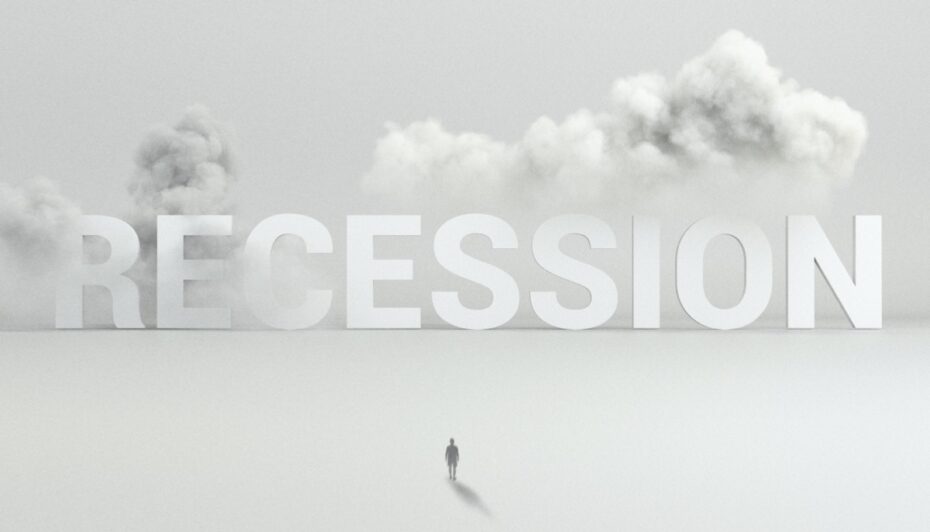More Than Half Of Americans Say They’d Lose Everything In A Recession

Recession feels like it’s a word that’s on the tip of everyone’s tongue.
Here’s a test: When’s the best time to start emergency savings for financial hardships that can occur in a recession?
Yesterday.
When’s the second best time?
Today.
There’s a ton of back and forth from the powers that be about whether or not we’re in a recession. In some segments of the economy, like tech, the writing seems to be on the wall. Some 95,000 jobs have been cut in the tech world, with some estimating that up to 900,000 jobs could be cut by the end of 2023.
There’s a triple-whammy going on, however. In addition to the job market and a flatlined stock market, prices for everyday consumer goods and essentials have reached all-time highs, making it harder than ever for average Americans to save.
Price Hikes
The reality is that the cost of daily necessities like gas, groceries, and housing have all been skyrocketing. It’s not just inconvenient, it’s becoming downright unaffordable. The rising cost of gas is making it more expensive to commute or travel, and buying simple grocery items like eggs has become a real financial strain. Heck, the cost of electricity or heating your home
Additionally, rent prices in many urban areas are becoming almost impossible to keep up with. New York City, for example, rents in January 2023 were at an all-time high. To add insult to injury, a more recent report found that the average renter household in the United States is currently spending more than 30% of their income on rent alone.
The situation is tough and it’s easy to feel overwhelmed, but let’s not lose hope. We’ll keep adapting, finding ways to cut expenses, and working together to push for solutions that make life more affordable for everyone.
Are you feeling personally victimized by these price hikes? It’s like, every time you go to buy almond milk latte or organic kale, the prices have gone up again! It’s like the world is against us avocado-toast-loving, social-media-obsessed millennials. But for real, these price hikes are making it harder for people to save up for those must-have experiences, like that music festival or that Instagram-worthy vacation. It’s time for us to get creative with our spending and find new ways to save money without sacrificing our lifestyles. So let’s band together, channel our inner Marie Kondo, and find joy in decluttering our expenses
Regardless of whether we are in a recession or not, as consumers, it is always important to be mindful of our spending habits and financial well-being. We can take steps to save money by budgeting, cutting unnecessary expenses, and shopping around for the best deals.
Additionally, we can support local businesses and the economy by choosing to buy from small, independent shops instead of larger corporations.
Finally, it is always a good idea to prioritize emergency savings and to have a plan in place in case of unexpected financial hardship.
What Happens If There Is A Recession In America?
If a recession hits, there will be an even greater wealth divide and a lot of people will be financially ruined. According to a recent survey by Real Estate Witch, more than half of Americans 55% claim that they would lose everything in a recession. That. Is. Scary.
What is even more scary, the survey also found that nearly 1 in 5 Americans (18%) don’t think the economy will ever recover. Like, ever. They think life will always be financially and economically awful.
Let’s hope they’re wrong.
How To Make Yourself Recession Proof
Failing to plan is planning to fail, right? So in order to make yourself recession-proof, you need a combination of financial planning and personal development. Some strategies to consider include:
- Build an emergency fund: Start saving money in an emergency fund that can cover at least six months of living expenses. This will help you weather any job loss or financial hardship during a recession.
- Live below your means: Prioritize your spending and avoid unnecessary expenses. Unnecessary debt is your enemy, especially in times of economic uncertainty.
- Diversify your income: Consider taking on a side hustle or finding alternative sources of income. This will not only help you earn more money, but also diversify your income streams.
- Invest in yourself: Focus on personal development, such as learning new skills or pursuing additional education. This will make you more valuable to employers and increase your earning potential.
- Be prepared for market changes: Keep an eye on market trends and adjust your career path if necessary. Being flexible and adaptable can help you stay ahead of the game during uncertain times.
Remember, recession-proofing yourself takes time and effort, but it is worth it in the long run. By being proactive and taking steps to secure your finances and career, you can be better prepared for any economic downturn.